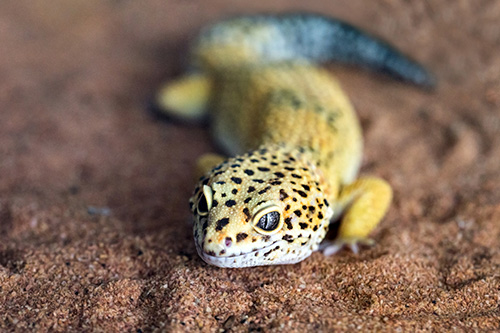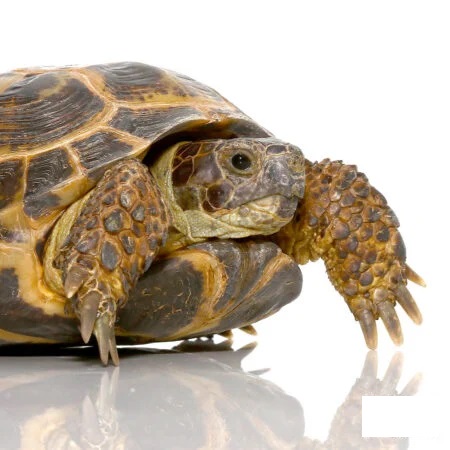
Nutrition-related disorders and diseases are common in reptiles. We can help you avoid these problems!
Reptiles can suffer from a variety of diseases, some of which can cause serious respiratory, gastrointestinal, and liver problems. They also commonly harbor internal and external parasites, including hookworms, roundworms, mites, and ticks. All reptiles can suffer from nutritional and environmental-related disorders and diseases.
We recommend that you bring your new reptile in for an initial exam so we can make sure it’s healthy. We can also determine the sex of your new pet! If they need future veterinary attention, we’ll also have a baseline to compare against. Although reptiles don’t need vaccinations, they can benefit from routine exams. Annual veterinary visits can even help them live longer!
Turtles and tortoises come in all shapes and sizes and we see them all! It is very important to provide your turtle/tortoise with the appropriate diet, housing, and care. Sometimes without the appropriate care, their beaks can become overgrown which requires veterinary intervention.
We can share our knowledge of appropriate enclosures, temperature and humidity, lighting, substrates (ground covering), cleaning, and shedding (species-specific). Besides having feeding requirements that are species-specific, reptiles can become stressed and may not eat. If this happens, please contact us so we can help.
A healthy snake, lizard, or turtle/tortoise should be alert and active, showing interest in its environment; its scales/skin/shell should be smooth and free of deformities. If you have any questions or concerns regarding your reptile, we are here to help!


